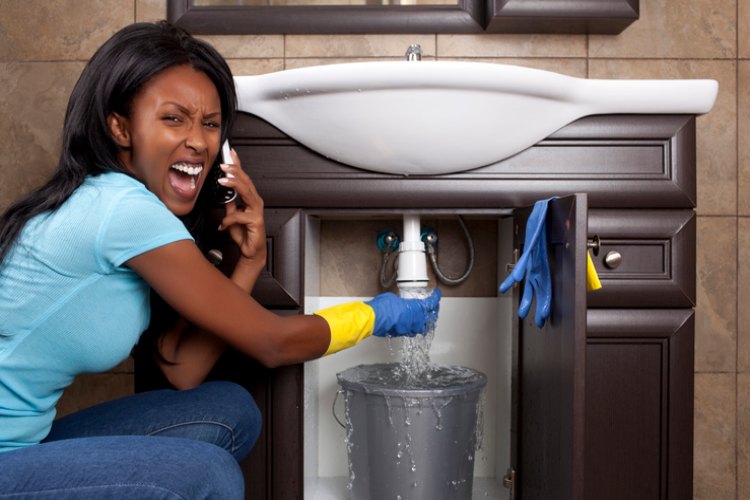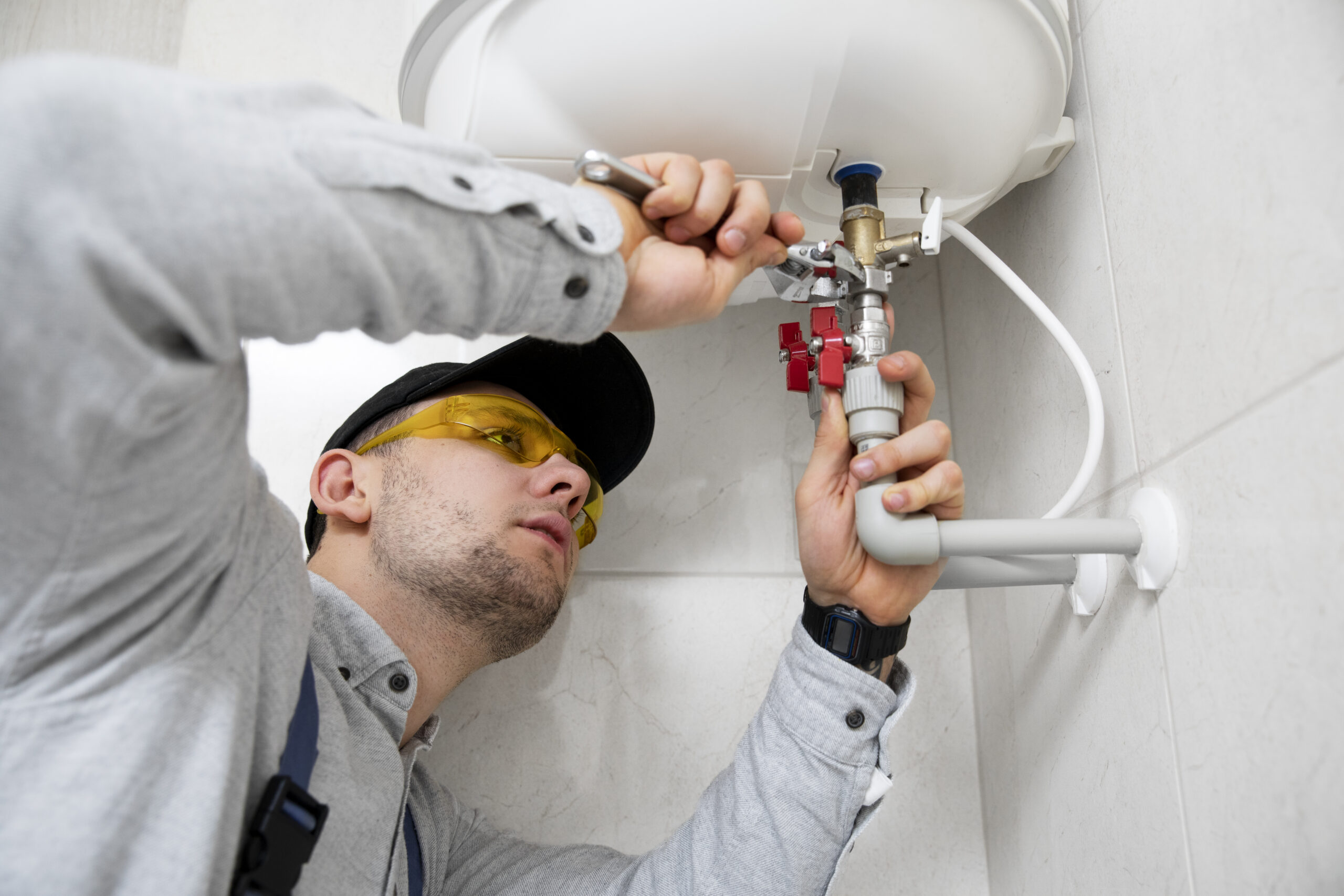Rapid Tips for Urgent Plumbing Issues: What to Do Until A Plumber Arrives
Rapid Tips for Urgent Plumbing Issues: What to Do Until A Plumber Arrives
Blog Article
How do you actually feel on the subject of Plumbing Emergencies: Tips on What To Do Before?

Plumbing emergencies can strike any time, creating stress and anxiety and possible damages to your home. Whether it's a ruptured pipe, a blocked drain, or a leaky tap, knowing just how to take care of the circumstance up until an expert plumbing gets here can conserve you from additional problems. This article provides crucial emergency situation pipes suggestions to help you minimize damages and gain back control during a plumbing situation.
Shut off the Supply Of Water
The first step in any kind of pipes emergency is to shut off the water. For localized issues, such as a dripping tap or toilet, switch off the shutoff near the fixture. When it comes to a significant leak or ruptured pipeline, locate your home's major water shut-off valve and turn it off quickly. Understanding the location of these shutoffs in advance can conserve useful time during an emergency situation.
Address Little Leaks with Momentary Fixes
Tiny leaks can quickly come to be significant troubles if left unattended. Use these momentary fixes till professional aid arrives:
While these solutions aren't permanent, they can assist minimize water loss and damage.
Unclog Drains Pipes Safely
A stopped up drain can be a discouraging and unpleasant concern. Below's exactly how to tackle it:
If these approaches don't work, prevent making use of excessive force, as it may aggravate the clog.
Manage Overflowing Toilets
An overflowing bathroom can create immediate mayhem. Right here's what you must do:
Shut Off Your Hot Water Heater
In specific emergencies, such as a burst pipeline, it's smart to shut off your hot water heater. This stops overheating or damages to the system when water stops moving. Shut off the power supply to the hot water heater (electrical or gas) and allow it cool to stay clear of possible dangers.
Momentarily Quit a Burst Pipe
A burst pipeline can cause considerable water damages in minutes. To reduce the issue:
Call an expert plumbing instantly to address the problem completely.
Manage Frozen Pipes Carefully
In chillier climates, frozen pipelines are a typical emergency. If you suspect an icy pipe:
Avoid Further Damages
Taking quick activity to reduce damage can conserve you money and time in the long run. Below's exactly how:
. Have an Emergency Pipes Set
Prepare a standard plumbing emergency situation set to take care of minor concerns efficiently. Your package should consist of:
Having these tools available can make a considerable distinction in your capacity to take care of emergencies.
Know When to Call a Specialist.
While quick fixes can aid momentarily, certain plumbing issues require instant expert attention. Call a plumbing professional if:.
Quickly calling a specialist ensures the issue is dealt with properly and protects against further problems.
Conclusion.
Plumbing emergency situations can be frustrating, yet with the right understanding and devices, you can take care of the scenario effectively till assistance gets here. By switching off the supply of water, addressing tiny leakages, and using short-lived repairs, you can reduce damages and maintain your home safe. Remember, these pointers are momentary solutions; constantly seek advice from a qualified plumbing technician to deal with the origin of the issue. Preparation and fast thinking are your ideal allies in any pipes emergency.
8 Helpful Tips for Managing Plumbing Emergencies at Home
If your plumbing system hasn’t failed once, wait for it because almost everyone has a story to tell. Sometimes, it could be simple emergencies such as a leaking pipe, a blocked cistern, or even a big burst pipe. In situations like this, you need to have some handy tips to save you some money and from possible damages.
Take care of minor issues early.
Sometimes, you could have avoided an emergency by taking proactive measures while it was still early. Some major plumbing emergencies can be a result of an ignored minor issue. We recommend that you have items like plumbing tapes and other related items. A plumbing tape can allow you to manage minor leaks before the plumber arrives.
Cut off the water supply.
This tip is essential in almost any type of leakage problem. For problems like minor leakages in the toilet or kitchen, turn off the supply that takes water to the affected pipes. If the leakage is a major pipe, you must shut off the supply valve to the entire building. This will help you avoid flooding your home and neighbors if you share a flat.
Know your plumbing system
Folks typically move into a new apartment without understanding the water supply around the building. This can prove disastrous if a water emergency arises and the plumber is far away. The previous tip will prove useless if you don’t practice this one. More importantly, know where your water shut-off valve is located – you’ll need that knowledge to prevent potential home floods.
Have some common handy tools
There are lots of plumbing emergencies that you can handle without hiring a plumber. That’s why you must keep some tools available always. Some tools that you can use to fix simple plumbing emergencies easily include plumbing tapes, screwdrivers, thread seal tapes, plungers, pliers, tape measures, and rubber gloves.
Insulate your pipes from cold
You’ll save yourself from many plumbing expenses if you protect your water pipes from the cold. This is because of the harmful effects that cold weather can have on your pipes. During winter, your pipes can burst from being overly expected to freezing temperatures. So, make sure insulators are there to keep the pipes working correctly.
Avoid practices that will clog your toilet.
Many people indulge in practices that can damage the plumbing system of the entire building. One of these is when they use their toilet to dispose-off garbage. They flush all kinds of things, such as paper towels, bandages, hairs, female sanitary products, etc., down the toilet. This will block your toilet in the long run, incurring unnecessary expenditures. Dump such waste in the trash instead.
Check your dials regularly.
Sometimes, there could be leakages in your home without noticing them in time. So, constantly monitor your water meter dial. If the dial is reading when there is nobody using water, this is an indicator that there is leaking. Check for leaks immediately. Call a plumber as soon as possible if you can’t find any.
https://www.constructionplacements.com/8-helpful-tips-for-managing-plumbing-emergencies-at-home/

I discovered that write up on Plumbing Emergencies: Tips on What To Do Before while doing a lookup on the internet. Sharing is nice. Helping others is fun. Thanks a lot for taking the time to read it.
Learn More Report this page